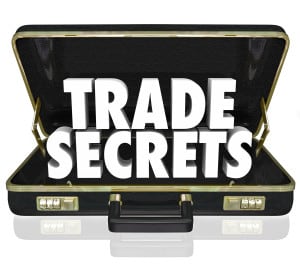Trade secrets are sometimes more valuable to a company than even a large sum of money. How a company does business, from its manufacturing processes to its client lists, is valuable information that could cost a company dearly if revealed. If a secret formula or manufacturing process for a product is revealed, it may enable people to develop the product themselves and cost the company sales. If client lists are shared, it may open the door to other companies unfairly competing with the organization. Similarly, working in high level management and leaving the company with information on how the company operates and using it against the previous company can be considered misappropriation of trade secrets and unfair competition.
Misappropriation of trade secrets can be a costly offense for individuals and companies affected by it, and individuals or companies that are successfully taken to court for it. However, sometimes proving misappropriation can be difficult. There are many reasons for this.
Proving Misappropriation of Trade Secrets
If you suspect misappropriation of trade secrets, the first step is to gather as much information as possible. In order to successfully try someone for such an offense, you need to have all of your evidence in place first. One of the reasons proving misappropriation of trade secrets is so difficult is that it has to be proven that information that was not publicly available was used unfairly to the benefit of someone else who had taken advantage of a former position. You need to prove that the other company or individual, if competing, wouldn’t have been able to do so as they had without utilizing knowledge of company secrets. Additionally, before the case even begins, you must define the trade secrets with “reasonable particularity”. This can become particularly challenging and sometimes confusing.
Defining Trade Secrets With Reasonable Particularity
This first stage of a case involving misappropriation of trade secrets is the most important part. The complaint will give initial notice of the facts of the case to the defendant regarding the alleged trade secrets and how they are believed to have been misappropriated. In some cases, it may serve as the launching point for a temporary restraining order or preliminary injunction.
California has a statutory requirement that is somewhat unique. The plaintiff is required to identify its trade secrets with “reasonable particularity” before starting discovery. This is such an important part of the procedure because the future of the case’s success or failure is heavily weighed by the definition of the trade secrets that have been misappropriated.
The plaintiff must be careful how they define the trade secrets as there are consequences to being either too narrow or too broad. If the definition is too narrow, the plaintiff may miss some information that has been misappropriated. On the other hand, if the definition is too broad, much of the information will be publicly known and leave the case open to summary dismissal on “prior art” grounds. “Prior art” is essentially another term for information that is publicly available and not able to be considered a trade secret.
Legal counsel usually spends a good amount of time going over this definition prior to trial because of how much it can impact the rest of the case. Cases have been won or lost more or less before they’ve even begun simply because of how the trade secrets were defined in the beginning of the case.
Another difficulty with defining trade secrets with “reasonable particularity” is that as the case will be tried publicly, the trade secrets as defined will also become public information. The plaintiff has to then be careful to not only define the trade secrets that were broken so that in court the defendant can be effectively tried, but also not in a way that someone reading about the case outside of the courtroom would then be knowledgeable of exactly what those secrets were.
One of the things that makes defining the trade secrets with reasonable particularity less complicated is having a professional business litigation attorney standing by your side to help you at this early stage of your case, and the later stages to follow that are built on this foundation. Your attorney will also help you to prepare your case, including any documentation that may serve as evidence of the misappropriation taking place. Misappropriation of trade secrets is usually not an easy thing to prove, but having a reputable attorney by your side will give you the best chance of stating your case in court and winning.
Conclusion
Misappropriation of trade secrets is a particularly difficult case to try in court, but with proper preparation and correct definition of trade secrets with reasonable particularity, you can get through this legal hurdle and exercise justice fairly. It’s important to understand that hiring improperly screened individuals or making managers of people who have not proven themselves trustworthy yet is a way to leave yourself vulnerable to situations where your trade secrets may be used inappropriately. Because trade secret misappropriation is a difficult case to prove, there are many cases of individuals misusing trade secrets without the original company being able to successfully take them to court. Sometimes unfair competition does go unpunished and the original company does suffer. Being proactive is the best defense.
However, if you are involved in a case of misappropriation of trade secrets, we are happy to help. WB Law Group is a reputable law firm ready to answer your legal questions and potentially take your case.
For questions, or to schedule a consultation, contact us today at 559.431.4888 (Fresno) or 619.399.7700 (San Diego).

